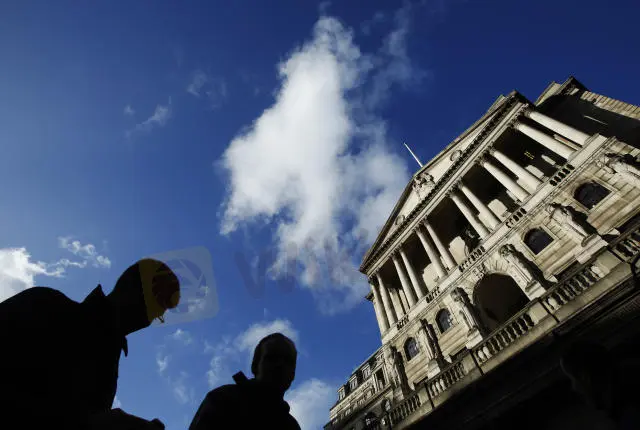简体中文
繁體中文
English
Pусский
日本語
ภาษาไทย
Tiếng Việt
Bahasa Indonesia
Español
हिन्दी
Filippiiniläinen
Français
Deutsch
Português
Türkçe
한국어
العربية
BoE to hike interest rate again in February – Reuters poll
Abstract:According to a Reuters poll, the Bank of England will tighten its monetary policy further and hike interest rates at the upcoming meeting on February 3. Red-hot inflation and the milder economic impact of the Omicron variant were cited as reasons for the expected hike.

Key findings
Inflation will peak next quarter before starting to decline in the third quarter and won't reach the BoE's 2% target until the second quarter of next year, adding pressure on the central bank to act.
Median inflation forecasts for this quarter and next jumped to 5.2% and 5.5% from 4.7% and 4.6% in the previous poll released in December.
Almost 65% of respondents expected a 25-basis-point rate increase, while the proportion expecting a rise to 0.50% by the end of March was more than 75%.
Median forecasts showed the BoE hiking its main interest rate by another 25 basis points in the third quarter - a quarter earlier than predicted last month. The BoE will then wait until early next year before raising it again, to 1.00%, also earlier than previously expected.
Economic growth was expected to have slowed to 0.6% this quarter after expanding by 1.0% at the end of 2021. It will then grow 0.9% next quarter before slowing to 0.7% and 0.6% in the following two quarters.
GDP growth for 2022 was pegged at 4.5%, the median of 66 economists showed, and in 2023 it was put at 2.2%. That follows an expected 7.0% expansion last year.

Disclaimer:
The views in this article only represent the author's personal views, and do not constitute investment advice on this platform. This platform does not guarantee the accuracy, completeness and timeliness of the information in the article, and will not be liable for any loss caused by the use of or reliance on the information in the article.
Read more

The president of @Liberland, @Vít Jedlička come on stage, dialogue on trading security.
The 2025 WikiEXPO Hong Kong Station is about to grandly open. the president of @Liberland, @Vít Jedlička come on stage, dialogue on trading security.

Countdown: 1 day.WikiEXPO2025's first stop, Hong Kong, is about to open.
⏰ Countdown: 1 day. WikiEXPO2025's first stop, Hong Kong, is just tomorrow. Focus on transaction security and explore new investment opportunities. ???? Get ready to start now. See you tomorrow.
JustMarkets Review 2025: Live & Demo Accounts, Withdrawal to Explore
Established in 2012, JustMarkets (Formerly JustForex) is an online forex broker based in Cyprus and serves clients in over 160 countries. Featuring a low entry barrier, a 50% deposit bonus, and robust trading platforms -MT4 and MT5, JustMarkets has gained great popularity among retail investors in recent years. JustMarkets allows traders to trade over 260 CFD-based instruments, which is not an extensive range, yet on leverage up to 3000:1 to increase trading flexibility. To enhance the trading experience, both MT4 and MT5 are provided, along with JustMarkets Trading App, MetaTrader Mobile App, and MetaTrader WebTerminal. JustMarkets offers a 50% deposit bonus to boost traders' confidence. Opening an account is a fully online process, typically completed within one day.

WikiEXPO Becomes Partner of the Liberland Government
Wiki Finance EXPO is honored to announce a partnership with the Free Republic of Liberland. This collaboration will further advance global dialogue on financial innovation and decentralized technology, bringing cutting-edge insights and industry opportunities to participants.
WikiFX Broker
Latest News
Why Are Financial Firms Adopting Stablecoins to Enhance Services and Stability?
Experienced Forex Traders Usually Do This Before Making a Lot of Money
Octa vs XM:Face-Off: A Detailed Comparison
When High Returns Go Wrong: How a Finance Manager Lost RM364,000
Bridging Trust, Exploring Best—WikiEXPO Hong Kong 2025 Wraps Up Spectacularly
Fidelity Investments Explores Stablecoin Innovation in Digital Assets Sector
Interactive Brokers Expands Crypto Trading with Solana, XRP, Cardano, and Dogecoin
SEC Ends Crypto.com Probe, No Action Taken by Regulator
Why More People Are Trading Online Today?
Broker Comparison: FXTM vs XM
Currency Calculator







